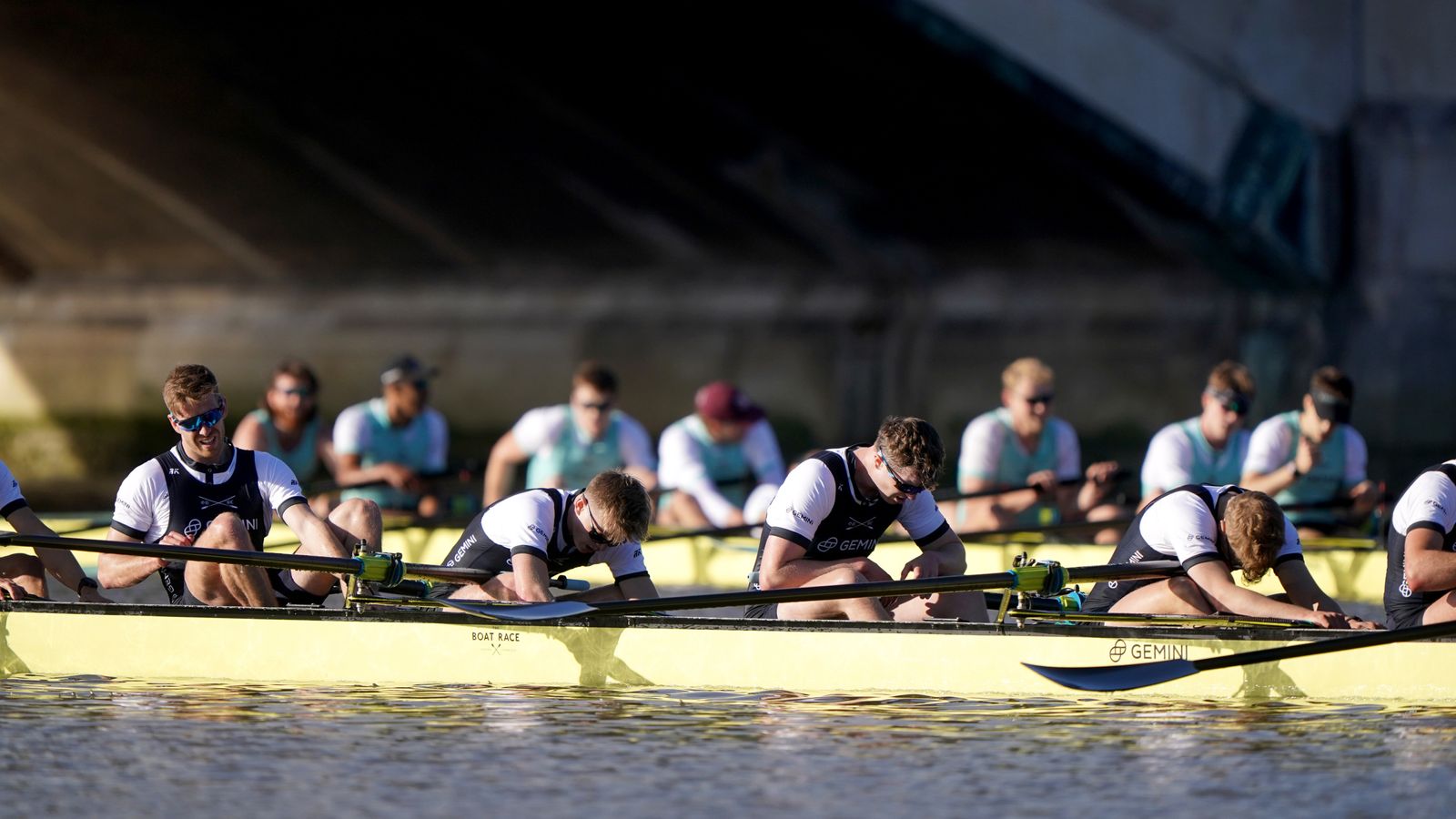A University of Oxford rower has criticised conditions in the River Thames after their defeat in the 2024 Boat Race, saying: “It would be a lot nicer if there wasn’t as much poo in the water.”
Research earlier this week found high levels of E. coli were in the part of the river used for the annual race between the University of Oxford and the University of Cambridge.
All crews were given safety guidance on a range of preventative measures, including covering up scrapes with waterproof plasters and ensuring rowers avoided swallowing any water that splashed up from the Thames.
After the race, Oxford rower Leonard Jenkins told BBC Sport: “This morning I was throwing up and I wasn’t sure I was going to be able to race.
“I kept that quiet and ultimately that’s on my shoulders. It may not have been the right choice because I didn’t have my all to give in that race.
“It would be a lot nicer if there wasn’t as much poo in the water.
“It’s not to take away from Cambridge, as we may not have beaten them even if we were all on top form.”
Cambridge extended its dominant run in the annual Boat Race with victories in both the men’s and women’s events, despite Oxford being considered favourites in both.
The men claimed a fifth trophy in six years – to lead 87-81 overall in the race between the storied universities which dates to 1829 – while the women cruised to a seventh straight triumph for a 48-30 overall lead.
Regular testing conducted by River Action and the Fulham Reach Boat Club between February 28 and March 26 detected E. coli, which can cause serious infections.
The 16 tests around Hammersmith Bridge in west London indicated an average of 2,869 E.coli colony forming units (CFU) per 100ml of water. The Environment Agency’s quality standards level requires below 1,000 CFU per 100ml.
The highest level recorded in their testing was 9,801 CFU per 100ml, nearly 10 times higher than levels graded as “poor” by the regulator.
River Action said the testing locations in its research suggested the source of pollution is from Thames Water discharging sewage directly into the river and its tributaries.
A Thames Water spokesperson told Sky News on Wednesday: “We have experienced higher than average long-term rainfall across London and the Thames Valley with groundwater levels exceptionally high for the time of the year.
“The overflows are designed to operate automatically when the sewer network is about to be overwhelmed which then releases diluted wastewater into rivers, rather than letting it back up into people’s homes.
“We are working hard to make these discharges unnecessary and have published plans to upgrade over 250 of our sites, including a £100m upgrade of our Mogden sewage treatment works in southwest London to treat the high volumes of incoming sewage and reduce the need for overflows during wet weather.”
Get Sky Sports on WhatsApp
You can now receive messages and alerts for the latest breaking sports news, analysis, in-depth features and videos from our dedicated WhatsApp channel. Find out more here…

